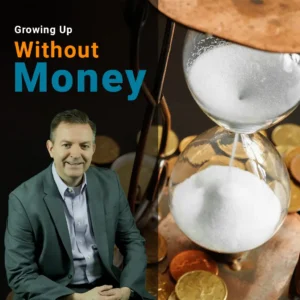Discussing finance with your children can be tricky, but these suggestions should help.
Many parents find it difficult to talk to their kids about money. Sometimes it’s because they lack confidence, don’t have the proper skill set, or haven’t had good financial role models in their own lives. Regardless of the reason, the situation can be challenging for many parents.
Like any tricky subject, avoiding it won’t make it go away. That will only make the subject “taboo” and leave your kids unprepared for the future, and no one wants that.
If you do a quick internet search, you’ll find several surveys showing that parents are more comfortable talking about the three-letter “s” word with their kids than they are talking about the five-letter “m” word. I’d contend that money might be a more important subject because it touches our lives (and the lives of our kids) EVERY SINGLE DAY.
So, how do we begin talking about money with our kids?
Well, it takes a bit of finesse, along with a gut check. Can you be open? Can you dig deep and offer a hefty dose of honesty? You’re going to have to if you want to have a serious money discussion. But, don’t worry, kids are very forgiving. They may know a lot, but YOU have more experience.
So, take a deep breath, and use the following suggestions to speak to your kids about money.
1. Take the tension out of the money discussion.
Kids understand that money can buy things.
They’re exposed to the transactions that buy groceries, gas, gut crunchers, gizmos, and other items that start with the letter g (and every other letter before and after).
However, kids are smart, and they pick up on more than just what you buy with your money.
Kids can see (and feel) when you’re stressed out about finances. They can sense your anxiety when money is tight, especially before a significant purchase or around the time that you pay your monthly bills.
I have to admit, my stomach sometimes hurts when I spend money. Even I get stressed about it sometimes. Who would’ve guessed it?
As parents, we all bring our past beliefs, anxieties, preconceptions, and other feelings into every conversation with our kids. But if we treat money as a tense subject, our kids will pick up on it, which will start a vicious cycle as they build their notions about money and finance.
So before broaching the subject of money with your kids, evaluate the situation and get some help dealing with whatever crap you may be holding onto around the issue.
We don’t want them to inherit our financial anxiety, so let’s be adults about it!
2. Have a financial discussion with your kids and ditch the sermons or lectures.

When teaching kids about money, the conversation doesn’t end with a one-time talk about their allowance. Children need ongoing exposure to financial situations and practical life lessons to develop healthy financial habits.
One of the main goals of creating our podcast was to expose my kids to money and finance. It doesn’t mean they want to spend hours discussing the concepts we introduce, but being exposed to the information acts as a springboard. They hear something, get a bit curious, and ask a question. I also ask them questions to make sure that they understand the concepts we discussed.
There is no greater lesson than your kids knowing that you don’t always have all the answers. When you have to ask questions yourself, it shows them that it is okay for THEM to ask questions.
Your kids will want to learn something about money at some point because kids are curious. Don’t dodge their questions or diminish their curiosity by telling them they are not old enough to learn.
It’s time to pull back the curtain and expose the “Great and Powerful Oz.”
When it comes to having conversations about money with your kids, leave the subject out in the open so that everyone can participate.
3. Talk to your kids about money early and often.
There is so much that is tied to money and finance.
When we talk about money, we have to consider its attachment to emotions, habits, choices, budgeting, and more. When it comes to money, we are faced with new scenarios all the time.
The winter after I left college, I broke my hand while snow tubing. It just so happens that I had a high-deductible health insurance plan. That was a rude awakening!
It was a moment for my dad to teach me the importance of having an emergency fund and that things don’t always work out the way you might anticipate (with expensive results).
If I had an emergency fund, I would have been prepared. My dad knew this because he had one. With six kids, he learned long before that emergencies happen all the time when there are 8 people to take care of. I wish he had imparted that wisdom on me a lot sooner.
The point is that there are always opportunities for us to teach our kids about healthy finance. So seize the opportunity every chance you get. Sure, they’ll roll their eyes and offer up snarky comments, but if you are persistent, your kids will know that you are serious, they’ll know you’re not going to stop, and eventually, they’ll get used to it.
The time to discuss money is not a time to be their friend.
It’s time to teach them what they need to know.
4. When it comes to kids and money, be prepared to walk the talk.
As we’ve said before, kids are more intelligent than we give them credit for, and they can see right through you. If you try and teach your kids with a “Do as I say, not as I do” attitude, you’re asking for trouble.
Kids are always looking. Using coupons, cooking meals instead of eating out, budgeting (and being prepared to say “no” when something doesn’t fit the budget), and investing wisely will go a long way to show them that you live the lessons you are trying to teach.
It was my mom who taught me the most about money. We are kindred spirits in that respect.
I still remember her loaning me money for my first IRA deposit when I got my first “real” job. It yielded a nice little tax refund which allowed me to pay her back and start investing. What a great moment! She taught me the importance of compound interest, helped me do it, and showed me that she walked the talk.
We all have it in us to make it happen because we love our kids, and they need our help.
5. Your kids’ financial education is never over.
As a friend of mine noted, just before my wife gave birth, “It’s forever, dude.”
How right he was!
Even when the kids aren’t around, I think about them.
Are they having a good day?
Did that math test go well?
Did that special boy or girl say “hello” to them today?
When it comes to money and finance, the discussion is never over.
They want to buy the newest video game today, or a new pair of sneakers tomorrow, money in high school, money in college, their first job, their first home, preparing for retirement. As parents, our job is NEVER over. Money makes it all go round, and your job, as a parent, is to continue to guide them.
Once you embrace the fact that you may never be your child’s most valuable and reliable source of financial insight and guidance (though you shouldn’t stop trying), you’ll find it easier to help them grow into awesome kids who know how to take care of themselves.
Go forth and help your kid prosper.
Hopefully, these five insights will help you better discuss money and finance with your kids and help them build a foundation for the financial journey ahead.
We’ll get into more detailed suggestions on our podcast and other blog posts, but just remember that you need the right mindset to run a marathon. Training happens daily, one step at a time.
The more you expose your kids to healthy concepts about money and finance while keeping them interested, the better off you (and they) will be.








